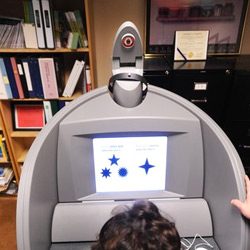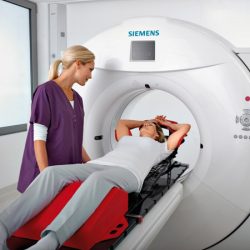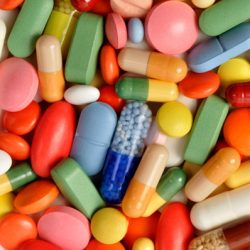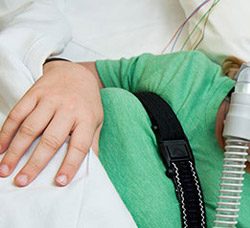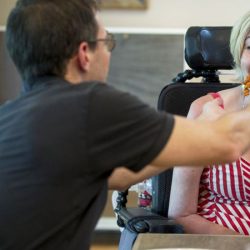In the U.S. and other industrialized nations, testing for infectious diseases and cancer often requires expensive equipment and highly trained specialists. In countries where resources are limited, performing the same diagnostics is far more challenging. To address this disparity, scientists are developing a portable, low-cost "paper machine" for point-of-care detection of … [Read more...]
Alternative Health News

Computerized ADHD testing: Innovative tool helps with diagnosis/tracking in both children and adults: A Study
Attention Deficit Hyperactivity Disorder (ADHD) is a common childhood condition characterized by more than normal difficulty with focus, behavior control, impulsivity and hyperactivity. It affects nine percent of children younger than 18 and about approximately four percent of American adults, according to the National Institute of Mental Health. Boys are four times more likely … [Read more...]
Molecules involved in Alzheimer’s have a role in weakening of connections between neurons: A Canadian Study
Alzheimer's disease is the most common form of dementia, affecting over 44 million people worldwide. Inside the brain, Alzheimer's disease is characterized by loss of neurons, and presence of abnormal tangles and plaques in the brain. Dr. Graham Collingridge, recently recruited from Bristol (U.K.) to the University of Toronto, has found that molecules that are strongly … [Read more...]
Low stent thrombosis rates with primary PCI: A Study
Stent thrombosis following urgent angioplasty for acute heart attack occurred in less than 1% of patients in a large, "real-world" registry, regardless of whether the antithrombotic treatment used during the procedure was bivalirudin, heparin alone, or a GP IIb/IIIa inhibitor (typically in combination with heparin). However, patients who experienced a stent thrombosis … [Read more...]
Parenting skills improve in ADHD parents with medication: A Penn State College Study
Parenting skills of adults with ADHD improve when their ADHD is treated with medication, according to Penn State College of Medicine researchers. At least 25 percent of clinic-referred children with attention deficit/hyperactivity disorder have a parent with ADHD. "Parents with ADHD are at increased risk to engage in problematic parenting techniques, including inconsistent … [Read more...]
Altered pain processing in patients with cognitive impairment: A Study
People with dementia and other forms of cognitive impairment (CI) have altered responses to pain, with many conditions associated with increased pain sensitivity, concludes a research review in PAIN®. The available evidence questions the previous notion that people with CI have reduced pain sensitivity to pain. Rather, "It appears that those with widespread brain atrophy or … [Read more...]
New technology may identify tiny strains in body tissues before injuries occur: A Washington University Study
Researchers at Washington University in St. Louis have developed algorithms to identify weak spots in tendons, muscles and bones prone to tearing or breaking. The technology, which needs to be refined before it is used in patients, one day may help pinpoint minor strains and tiny injuries in the body's tissues long before bigger problems occur. The research is available … [Read more...]
Involuntary eye movement a foolproof indication for ADHD diagnosis: An Israeli Study
Attention Deficit Hyperactivity Disorder (ADHD) is the most commonly diagnosed -- and misdiagnosed -- behavioral disorder in children in America, according to the Centers for Disease Control and Prevention. Unfortunately, there are currently no reliable physiological markers to diagnose ADHD. Doctors generally diagnose the disorder by recording a medical and social history of … [Read more...]
ACE-inhibitors associated with lower risk for amyotrophic lateral sclerosis (ALS): A Study
The antihypertensive medications angiotensin-converting enzyme inhibitors (ACEIs) were associated with a 57 percent reduced risk in the chance of developing amyotrophic lateral sclerosis (ALS, also commonly known as Lou Gehrig disease) in patients who were prescribed ACEIs greater than 449.5 cumulative defined daily dose (cDDD) compared with patients who did not use ACEIs, … [Read more...]
Alzheimer causes memory loss: University of Sussex Study
A brain protein believed to be a key component in the progress of dementia can cause memory loss in healthy brains even before physical signs of degeneration appear according to new University of Sussex research. The study, published today (29 May) in the open access Nature Publishing Group journal Scientific Reports, reveals a direct link between the main culprit of … [Read more...]
Parental incarceration can be worse for a child: American Sociological Association Study
With more than 2 million people behind bars, the U.S. has the highest incarceration rate in the world. This mass incarceration has serious implications for not only the inmates, but their children, finds a new University of California-Irvine study. The study found significant health problems, including behavioral issues, in children of incarcerated parents and also that, for … [Read more...]
Augmenting a gas naturally in our bodies fights RSV infection: University of Texas Study
A new study from the University of Texas Medical Branch at Galveston is the first to show that hydrogen sulfide, a gas produced naturally within our bodies, reduces the severity of respiratory syncytial virus, or RSV. When someone has a RSV infection, his or her body is less able to produce the protective hydrogen sulfide. The UTMB study found that a drug that triggers a steady … [Read more...]
Iron regulators join war on pathogens: A Study
Proteins responsible for controlling levels of iron in the body also play an important role in combatting infection, according to a study published today in Cell Host & Microbe. Humans -- along with all living organisms, including pathogens -- need iron to survive: invading organisms try to highjack it from their hosts in order to thrive and multiply. Researchers at EMBL … [Read more...]
Placebo effects of different therapies not identical: A StudyPlacebo effects of different therapies not identical: A Study
Not all placebos are equal, and patients who respond to one placebo don't always respond to others, according to research published July 31 in the open access journal PLOS ONE by Jian Kong from Massachusetts General Hospital, Harvard Medical School and colleagues from other institutions. The researchers tested the analgesic effects of genuine acupuncture, sham acupuncture … [Read more...]
Imaging glucose uptake activity inside single cells: A Columbia University Study
Researchers at Columbia University have reported a new approach to visualize glucose uptake activity in single living cells by light microscopy with minimum disturbance. In a recent study published in Angewandte Chemie International Edition, Associate Professor of Chemistry Wei Min's team developed a new glucose analogue that can mimic the natural glucose, and imaged its uptake … [Read more...]
New medicine for most common type of lymphoma: A Study
A clinical trial has shown that patients with a specific molecular subtype of diffuse large B-cell lymphoma (DLBCL) are more likely to respond to the drug ibrutinib (Imbruvica) than patients with another molecular subtype of the disease. The study appeared online July 20, 2015, in Nature Medicine. In this phase II trial, patients with the activated B-cell-like (ABC) subtype … [Read more...]
T-cell receptor therapy achieves encouraging clinical responses in multiple myeloma: University of Pennsylvania Study
Results from a clinical trial investigating a new T cell receptor (TCR) therapy that uses a person's own immune system to recognize and destroy cancer cells demonstrated a clinical response in 80 percent of multiple myeloma patients with advanced disease after undergoing autologous stem cell transplants (ASCT). This time, researchers modified T cells to attack cancer cells … [Read more...]
Breakthrough herbal medicine treatment for a common human fungal: Kansas State University Study
A Kansas State University microbiologist has found a breakthrough herbal medicine treatment for a common human fungal pathogen that lives in almost 80 percent of people. Govindsamy Vediyappan, assistant professor of biology, noticed that diabetic people in developing countries use a medicinal herb called Gymnema slyvestre to help control sugar levels. He decided to study the … [Read more...]
Sex life can be improved by yoga: Loyola University Study
Partner yoga may help couples who are struggling with sexual dysfunction, according to sexual wellness experts at Loyola University Health System (LUHS). This form of yoga uses massage, breathing exercises and mutually beneficial postures couples can do together to build trust, relax and have fun. "Distance and resentment can develop in marriages over time," said Susan … [Read more...]
Combining Chinese, Western medicine could lead to new cancer treatments: Cardiff University Study
Combining traditional forms of Chinese and Western medicine could offer new hope for developing new treatments for liver, lung, colorectal cancers and osteosarcoma of the bones. Experts from Cardiff University's School of Medicine have joined forces with Peking University in China to test the health benefits of a traditional Chinese medicine. The team also set-out to … [Read more...]
Patients Fall for Hi-Tech Hospital
It may come as a surprise, but hospitals are not the safest place when it comes to the danger of falling. Possibly due to medications and lack of familiarity, a patient falling is a very serious problem for hospitals. The technology you’ve seen in cars is helping cut down on falls. A fall at home has put Henry Garza in the hospital with a fractured hip. “He just turned … [Read more...]
Lift for Life: Kids Can Weightlift
Weightlifting and kids, how young is too young? The medical world is doing a 180 on the subject and now the benefits are outweighing the risks. Weightlifting can do so much more than build muscles and mass, it can create confidence and character. Ashley Kent is a 15-year-old powerhouse. This 4’11 freshman lifts more than she weighs. “I lift 135 pounds. I snatch 59, clean … [Read more...]
Epilepsy Laser Keeps Corey Running
Three million people in the United States live with epilepsy, a brain disorder that causes sudden, unpredictable seizures. Surgery is often considered a last resort, but new laser technology is making it easier on patients. A quiet jog through the woods used to be a luxury Corey Moquist couldn’t afford. “I’d have to rely on other people to get me around, driving wise,” … [Read more...]
Guideline offers direction in genetic testing for certain types of muscular dystrophy: American Academy of Neurology
A new guideline from the American Academy of Neurology (AAN) and the American Association of Neuromuscular & Electrodiagnostic Medicine (AANEM) recommends guidance on how doctors should evaluate the full picture -- from symptoms, family history and ethnicity to a physical exam and certain lab test results -- in order to determine what genetic tests may best diagnose a … [Read more...]
A new way of improving biotech drugs: A Danish Study
Researchers from the University of Copenhagen have discovered a way of improving biotech drugs. Better, cheaper and more effective drugs to combat cancer, arthritis and many other disorders. This is the result of a ground-breaking new technique developed by a group of researchers from the Faculty of Health and Medical Sciences at the University of Copenhagen. The method … [Read more...]
Barriers to implement complementary medicine: Boston University Study
Investigators at Boston University School of Medicine (BUSM) have identified that lack of time and a paucity of trained faculty are perceived as the most significant barriers to incorporating complementary and alternative medicine (CAM) and integrative medicine (IM) training into family medicine residency curricula and training programs. The study results, which are … [Read more...]
Drug therapies, parent training help children with ADHD and severe aggression: A Stony Brook University Study
Prescribing both a stimulant and an antipsychotic drug to children with physical aggression and attention-deficit/hyperactivity disorder (ADHD), along with teaching parents to use behavior management techniques, reduces aggressive and serious behavioral problems in children, according to a study conducted by researchers in the Department of Psychiatry at Stony Brook University … [Read more...]
Pulmonary rehabilitation helps patients with obstructive sleep apnea: American Thoracic Society Study
Pulmonary rehabilitation (PR) treatment could be a valuable addition to comprehensive therapy in patients with obstructive sleep apnea (OSA) syndrome, according to a new study. The study was presented at the 2015 American Thoracic Society International Conference. "In our study with 40 newly diagnosed OSA patients and a control group, pulmonary rehabilitation helped reduce … [Read more...]
Exercise before school may reduce ADHD symptoms in kids: A Michigan State University Study
Paying attention all day in school as a kid isn't easy, especially for those who are at a higher risk of ADHD, or attention deficit hyperactivity disorder. A new study from Michigan State University and University of Vermont researchers shows that offering daily before-school, aerobic activities to younger at-risk children could help in reducing the symptoms of ADHD in the … [Read more...]
Genotype found in 30 percent of Amyotrophic Lateral Sclerosis patients speeds up disease progression: A Study
Mice bred to carry a gene variant found in a third of ALS patients have a faster disease progression and die sooner than mice with the standard genetic model of the disease, according to Penn State College of Medicine researchers. Understanding the molecular pathway of this accelerated model could lead to more successful drug trials for all ALS patients. Amyotrophic lateral … [Read more...]
- « Previous Page
- 1
- …
- 10
- 11
- 12
- 13
- 14
- …
- 25
- Next Page »

